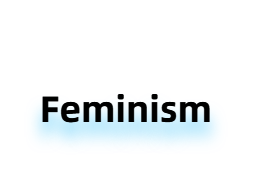Begum Rana Liaquat Ali Khan
The First Lady of Pakistan
Begum Rana Liaquat Ali Khan was a pioneer in many ways. She was the first woman to receive a degree from Lucknow University, the first woman to preside over a public meeting in the subcontinent, and the first Muslim woman to be appointed Governor of Sindh. However, she is most known for her work as the First Lady of Pakistan, where she made significant contributions to the social, educational, and economic development of the country.
Early Life and Education
Begum Rana Liaquat Ali Khan was born in Aligarh, India, on February 13, 1905, to Nawab Rustam Ali Khan and his wife, Bilqis Begum. Her father was a prominent lawyer and political activist who played a key role in the Pakistan Movement. Begum Rana Liaquat Ali Khan received her early education at home from her mother, who was an accomplished scholar herself.
In 1925, Begum Rana Liaquat Ali Khan became the first woman to receive a degree from Lucknow University. She then went on to study at the London School of Economics and Political Science, where she earned a master's degree in economics in 1933.
Social and Political Activism
Begum Rana Liaquat Ali Khan's involvement in social and political activism began during her time in London. She was a member of the Indian High Commission in London and played an active role in the Indian Students' Union. She also joined the Women's Indian Association (WIA), which was founded by Margaret Cousins, an Irish suffragist who had settled in India. Begum Rana Liaquat Ali Khan became the President of the WIA in 1935 and used her position to advocate for women's rights and education.
After the Partition of India in 1947, Begum Rana Liaquat Ali Khan moved to Pakistan with her husband, Liaquat Ali Khan, who became the country's first Prime Minister. She became the First Lady of Pakistan and used her position to address social issues and promote education and health care. She established the All Pakistan Women's Association (APWA) in 1949, which became the largest women's organization in the country. The APWA focused on empowering women and providing them with education, vocational training, and health care.
Education and Economic Development
Begum Rana Liaquat Ali Khan was a strong advocate for education and worked tirelessly to promote literacy in Pakistan. She established the Pakistan Women's National Guard (PWNG) in 1948, which aimed to promote education and health care among women. She also set up the National Committee for Women's Education, which was tasked with improving women's access to education and increasing the number of female teachers in schools.
In addition to education, Begum Rana Liaquat Ali Khan was also committed to promoting economic development in Pakistan. She established the Women's Bank in 1961, which was the first bank in Pakistan to be run entirely by women. The bank aimed to provide financial support to women entrepreneurs and help them start their businesses.
Legacy
Begum Rana Liaquat Ali Khan passed away on June 13, 1990, at the age of 85. Her contributions to the social, educational, and economic development of Pakistan were significant and continue to be felt to this day. She was a trailblazer who broke down barriers and paved the way for other women to follow in her footsteps. Her legacy serves as an inspiration to women everywhere who seek to make a positive difference in their communities.


2 Comments
Nice
ReplyDeleteGreat
ReplyDelete